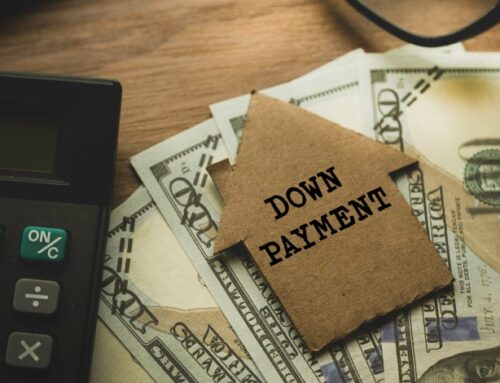Buying a home is supposed to be an exciting endeavor, especially for first-time homebuyers. No matter if you are in the process of securing your dream home or purchasing a starter home, that excitement is often met with stress and confusion for many first-time homebuyers.
From the mortgage preapproval process to the closing process, there are many moving parts with ample opportunity for first-time homebuyers to make a mistake that could leave them with buyer’s remorse.
Understanding the intricacies of the homebuying process will give you better negotiation power and help you when house hunting in the future.
In this guide, we’ll examine the most common mistakes first-time homebuyers make and provide tips on how to avoid them.
Common First-Time Homebuyer Mistakes
Entering the homebuying process for the first time may get a bit overwhelming. With various parties and processes involved, it’s easy to slip up and make some fundamental mistakes.
One mistake can turn what is supposed to be an exciting time into a stressful experience rather quickly. Let’s delve into some of the most common mistakes first-time homebuyers make and discuss how you avoid them.
1. House hunting before getting preapproved
Many first-time homebuyers start house hunting before consulting with a mortgage specialist. This crucial mistake can make the early stages of the homebuying process frustrating and longer than it needs to be.
Obtaining a mortgage preapproval may give you a leg up on the competition, especially in a seller’s market. Unless you’re a cash buyer, an offer without a preapproval may not be taken seriously by the seller. That’s because the seller doesn’t want to run the risk of you not qualifying for the amount you offered, especially when there are other offers on the table.
Receiving a preapproval from a mortgage lender has numerous advantages for homebuyers. The main benefit is the mortgage lender will clearly outline how much house you can afford. A preapproval will give you an accurate price range so you don’t submit an offer you can’t handle.
You may also hear the term prequalification when getting started. It’s important to understand the difference between preapproval and prequalification.
Prequalification is the estimate of what you might be able to borrow from a lender based on information such as your finances and credit history. It’s not uncommon for lenders to rely on self-reported information to provide you with a prequalified amount.
On the other hand, the preapproval process verifies the information you provided to give you an accurate price range.
2. Failing to get more than one rate quote
First-time homebuyers often get a mortgage quote from the financial institution they are familiar with. That’s a big mistake.
You should compare offers from various lenders to find the best terms and rates. By not comparing offers, you may end up spending more throughout the duration of the loan.
Receiving multiple quotes from different lenders generally involves meeting with mortgage lenders to provide financial documentation. Understandably, the first quote may be time-efficient, it may not always be cost-efficient.
It’s beneficial to shop around to find the lender that will offer you the best terms and rates. As a result, you may end up saving thousands of dollars in interest throughout the loan’s lifespan.
3. Buying more house than you can afford
Although you received a mortgage preapproval for a specific price range, that doesn’t necessarily mean it will always fit into your budget. That is because lenders use a debt-to-income (DTI) ratio formula to calculate your preapproval amount.
DTI refers to a percentage metric used to calculate your gross monthly income versus your monthly debt payments. There’s often a difference between your DTI and your monthly expenses as a whole.
Debt-to-income ratio is a great way for lenders to determine how much of your monthly income is going toward debt payments. However, DTI doesn’t account for all monthly expenses such as groceries, utilities and insurance payments.
Purchasing a home for the entire preapproved amount may make it harder to pay for your other monthly expenses.
You can avoid extending beyond your budget by calculating the monthly expenses that aren’t factored into your preapproved amount. Additionally, you should consider all costs associated with being a homeowner, including closing costs, maintenance and potential utility costs.
Another way to ensure you’re not purchasing a home outside of your budget is to use the rules of thumb for house affordability.
- Rule of 28 (Maximum mortgage payment): The rule of 28 states that your home loan should equal no more than 28% of your monthly pre-tax income.
- Rule of 32 (Maximum housing payment): The rule of 32 means your total housing payments shouldn’t be more than 32% of your monthly pre-tax income. Your housing payments need to include your mortgage, any private mortgage insurance, your homeowner’s insurance, property taxes and association fees.
- Rule of 40 (Maximum monthly debt payments): The rule of 40 states that all of your monthly debt payments shouldn’t be more than 40% of your monthly pre-tax income.
Want help? Check out Arizona Central Credit Union’s handy Home Affordability calculator.
4. Neglecting your credit report
Your credit score is one most important metrics lenders use to determine if you’ll get approved for a loan and at what terms and rates. At its core, credit scores help lenders understand your ability to repay your debts.
If you neglect to check your credit report throughout the homebuying process, you may not notice any errors, which can hamper your ability to receive favorable mortgage terms and rates.
You can avoid this mistake by checking your credit report before entering the homebuying process. Per the FTC’s website, Americans are legally entitled to a free copy of their credit report once every 12 months.
You can order one online at annualcreditreport.com. Arizona Central Credit Union members can receive a free comprehensive credit report via the SavvyMoney tool.
If you notice any inaccuracies, you should contact the credit bureau included in your report as soon as possible.
5. Assuming you need a 20% down payment
It’s a common misconception that homebuyers need a minimum of a 20% down payment to purchase a home. However, the 20% rule is merely a myth.
In reality, most first-time homebuyers put down less than 20% as a down payment. According to a January 2022 survey conducted by the National Association of REALTORS® Research Group, 69% of first-time homebuyers put less than a 20% down payment.
Moreover, first-time homebuyers make a median down payment of 6%, according to the National Association of REALTORS®.
Although, If you can afford it, putting a larger percentage down more may give you a better rate, lower your monthly payment and increase your equity in the home.
However, 20% by no means is a prerequisite to purchasing a home. There are specific home loan options available for those who qualify to put as little as 3% down.
Different mortgage options come with varying credit scores and down payment requirements. It’s beneficial to understand the provisions before applying for any given loan. That’s because specific mortgage options, such as a conventional loan, will require you to pay private mortgage insurance (PMI) if you put down less than 20%.
When calculating your budget for purchasing a home, you’ll want to decide what down payment amount is right based on your financial situation and goals.
6. Failing to consider all closing costs
One of the biggest mistakes first-time homebuyers make is only saving for a down payment and failing to consider all costs associated with the closing process.
Closing costs are processing fees you pay the lender for creating the loan. Generally speaking, closing costs are around 2% and 5% of the home’s price.
For example, if you take out a mortgage worth $400,000, you can expect to pay between $8,000 and $20,000 in closing costs. However, specific costs may depend on the type of loan you take and where you live.
With that said, here are some of the fees that may be included with your closing costs.
- Down payment: The part of the home’s purchase price that you’re required to pay upfront. 20% used to be the standard, but homebuyers are now paying even less. Specific home loan options may allow you to put in as little as a 3% down payment.
- Loan origination fees: Lenders may charge the buyer for initiating and processing the loan application. Fees may vary depending on the lender, but generally, the fees will not exceed more than 1% of the loan amount.
- Escrow fees: If you live in a state like Arizona, the house must be held in escrow before the sale is complete. Escrow fees may vary depending on the company you choose, but generally, it’s 2% of the home’s purchase price.
- Property tax: These are fees you pay to your local government for public services. That may include public schools, roads, and police and fire departments. The amount that you pay may vary depending on your location and home’s value. At closing, you may be required to pay at least six months of property taxes.
- Homeowner’s insurance: This insurance covers damage to the house and assets inside. Homeowner’s insurance is generally required through the mortgage lender. Since each insurance company uses a different formula to calculate premiums, it’s hard to pinpoint up-front insurance costs. However, the expense is required to be documented in your Closing Disclosure.
- Title insurance: The cost may vary depending on location, but title fees are usually a one-time cost of no more than 1% of the sale price.
First-time homebuyers in Arizona can expect to pay approximately $4,200 in closing costs. The average closing cost for a single-family residential home in Arizona was $4,190.34 in 2020, according to research conducted by ClosingCorp.
7. Neglecting first-time homebuyer programs
Many people aren’t aware that new homebuyers have the luxury of first-time homebuyer programs and grants. These programs are designed to make homeownership more attainable for the masses.
First-time homebuyer programs are typically offered by your city and state government. Before you go house hunting, it may be beneficial to see if you qualify for any of the programs offered within your state.
For first-time homebuyers looking to purchase a home in Arizona, here are some of the programs offered by the local government.
- Home Plus Arizona: This project is a down payment assistance program designed for lower-income individuals or families. Home Plus Arizona is provided through the Arizona Housing Finance Authority, and they can provide down payment assistance to Arizona residents for up to $19,200.
- Home In Five Program: This down payment assistance program is designed to help low and moderate-income individuals and families purchase a home in Maricopa County. The Home in Five program may provide down payment assistance in the form of a grant for 4% of the purchase price of your home.
- WISH First-Time Homebuyer Program: This program is designed to help alleviate the closing costs for eligible low and moderate-income families. If you qualify, you receive 4-to-1 matching grants of up to $22,000 for the purchase of a home.
8. Disregarding FHA, VA and USDA loans
Home prices across the United States continue to climb with no signs of slowing down. According to the most recent data from CoreLogic, home prices across the nation increased 19.1% year-over-year in January 2022. In the market of soaring home prices, first-homebuyers may believe homeownership is not attainable.
If you have not saved much for a down payment and your credit score isn’t up to snuff, you might find it challenging to qualify for a conventional mortgage. Fortunately, there are various government-insured home loan options to help more Americans become homeowners.
Let’s briefly review some of the government-backed home loan options that may be a fit for your financial situation.
- FHA loans: Backed by the Federal Housing Administration. Their goal is to make homeownership a reality for low-income borrowers. A minimum FICO score of 580 is required to receive the maximum financing with a 3.5% down payment. However, a FICO score of 500 is acceptable, but you must put a 10% down payment.
- USDA loans: These loans are backed by the United States Department of Agriculture. They’re designed to help mid-to low-income borrowers purchase homes in USDA-eligible areas. Income requirements will need to be met to qualify for a USDA loan. Some USDA loans do not require a down payment.
- VA loans: Backed by the US Department of Veterans Affairs. These loans are only eligible for active-duty military, veterans and their families. The benefit of VA loans is that no down payment is required.
9. Skipping the home inspection
When you’re competing with other offers, you may be tempted to sweeten the deal by offering to waive the home inspection. In fact, more homebuyers are offering to waive the home inspection.
According to data from the Real estate brokerage Redfin, 20% of winning home offers waived the home inspection contingency—up 13% from the previous year.
Homebuyers may skip the home inspection to save money and time upfront while making your offer more appealing to the seller.
If possible, you should always go through with the home inspection. The home inspector’s job is to evaluate the house to find major structural issues, home repairs and working conditions of appliances.
Waiving the home inspection may help your bid win, but it could be a costly mistake.
According to a survey conducted by the Porch Group, 86% of respondents claim their inspector found at least one major issue. Moreover, the respondents reported saving an average of $14,000 on the home’s final price after negotiation based on the home inspection.
10. Careless with credit before closing
As we discussed previously, the mortgage lender will pull your credit report multiple times throughout the homebuying process.
SImply opening, closing or running up lines of credit can mess up your credit score. You want to keep your credit score and finances as stable as possible until you’ve officially become the homeowner.
Being careless with your credit during the homebuying process can potentially derail the entire process.
We recommend using cash or a debit card for purchases during the homebuying process. Additionally, you should wait until the closing process is complete before buying materials for your new house.
Want To Learn More About The Homebuying Process? Check Out Some Of Our Recent Posts
Being a first-time homebuyer is supposed to be a fun experience. However, many first-time homebuyers feel overwhelmed with the various processes and paperwork. Using this guide as an example, you can help you avoid making critical mistakes that will leave you with some regrets.
Are you itching to learn more about the homebuying process? Here are some of our most recent posts to help guide you through the intricacies of purchasing a home.
- First-Time Homebuyers Guide to Home Loans: The homebuying process is a stressful one, especially the mortgage aspect. This guide will provide you with everything you need to know about mortgages.
- How to Get Preapproved for a Mortgage: Whether you are a first-time homebuyer or are looking for your forever home, you will benefit from understanding how to get preapproved for a mortgage.
- Navigating the Closing Process When Buying a House in Arizona: The closing process is the final step to becoming an Arizona homeowner. Learn everything you need to know about Arizona’s closing process.
- Mortgage Broker vs. Credit Union: Which One Should You Choose: Learn more about credit unions vs. mortgage brokers and which one will best fit your home loan needs.
- Debt-to-Income Ratio: How to Calculate Your DTI: Debt-to-income ratio (DTI) is a metric used by lenders to assess the risk of lending you money. Learn how to calculate your DTI.
- Types of Mortgage Lenders: How to Choose the Best One: Mortgage shopping is an important step in the homebuying process. Learn more about the various types of lenders and how to choose a mortgage lender.




